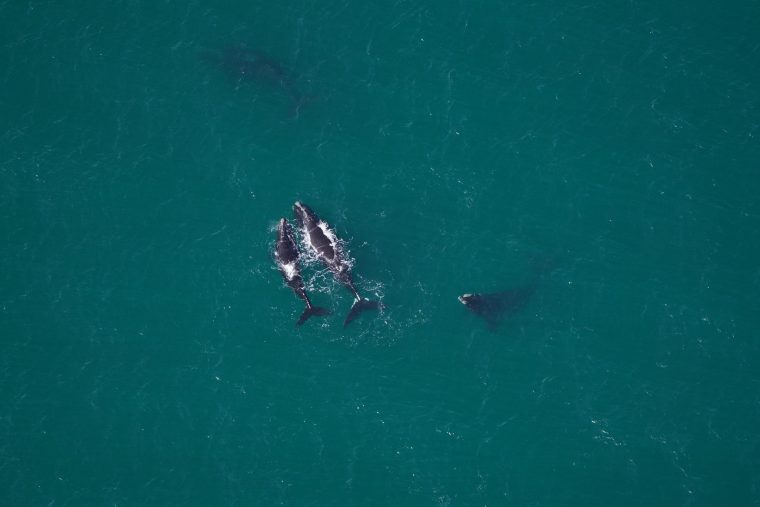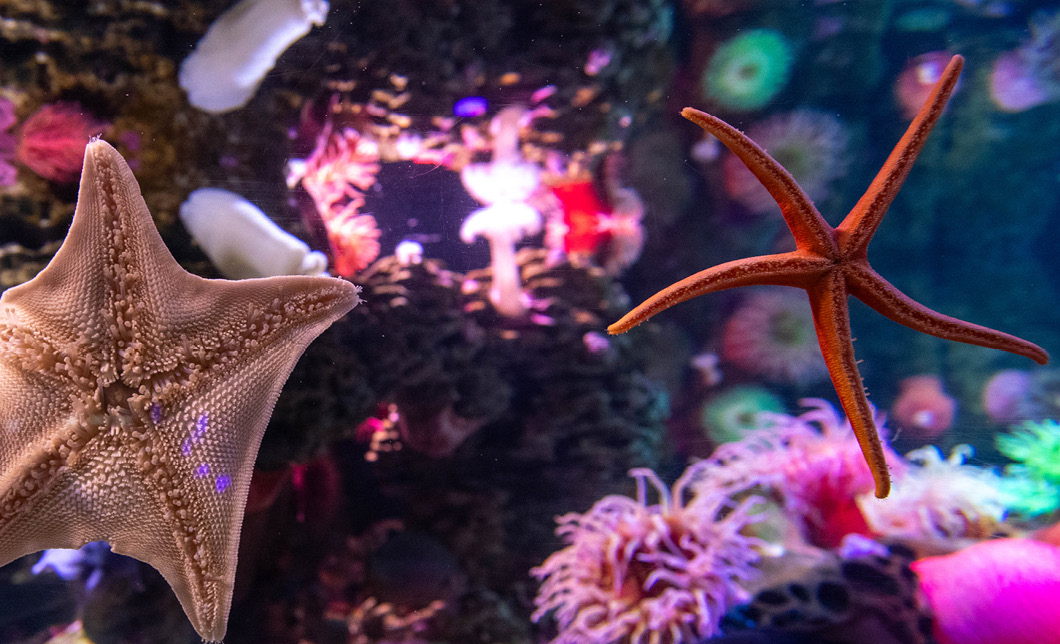Right Wind project aims to support offshore wind development and protect North Atlantic right whales

BOSTON, MASS. (June 2, 2022) – The New England Aquarium is partnering with Cornell University and LAUTEC US to develop an innovative decision support tool that helps offshore wind developers protect the critically endangered North Atlantic right whale.
The Right Wind project, funded through the National Offshore Wind Research and Development Consortium (NOWRDC), aims to develop tools that can be used to understand and resolve conflicts between wind development and right whale protections. The three organizations will pool their expertise to model right whale habitat, assess risks to right whales associated with wind development, and assess the financial risks of uncertainty in habitat models.
“We’re excited to be starting this project because it gives us an opportunity to develop tools that can help reduce the potential risks of wind energy development to North Atlantic right whales, a critically endangered species that numbers less than 350 individuals,” said Dr. Laura Ganley, an associate research scientist at the New England Aquarium, which conducts regular aerial surveys in the waters south of Martha’s Vineyard designated for offshore wind development.
Wind energy areas overlap with existing North Atlantic right whale habitat and migratory corridors, and habitat changes in recent years have led to uncertainty about where and when right whales might occur. The full impacts of wind development activities on whales are unknown, but pile-driving activities have the potential to displace whales from their habitat, increase stress hormones, and disrupt important behaviors, such as feeding and socializing.
“We ultimately want to work toward the coexistence of endangered whales with offshore wind development,” said Nick Zenkin, Research and Development Manager of LAUTEC US. “We aim to provide decision support for project developers when constructing offshore wind farms.”
Today, offshore wind developers use a combination of historical monthly occurrence data and real-time monitoring to understand how right whales are using the waters in and around the wind energy areas during construction. Combining Cornell’s acoustic data and the New England Aquarium’s aerial survey data, as well as their extensive expertise in habitat modeling, the team will improve understanding of right whale habitat in the Massachusetts/Rhode Island wind energy areas.
“What’s exciting is that this is arguably one of the most intensively studied offshore wind areas along the U.S. Atlantic Coast. This project provides the perfect opportunity to leverage the extensive survey data and incorporate it into marine spatial planning, while balancing industry planning with minimizing impacts to endangered species such as North Atlantic right whales,” said Dr. Aaron Rice at Cornell University.
The models will be used in conjunction with LAUTEC’s knowledge of offshore wind planning to conduct an economic trade-off analysis considering the uncertainty in whale occurrence and the financial risks of development. The trade-off analysis will be the basis of the prototype decision support tool that can be used by developers and stakeholders (such as environmental non-profits that want to ensure right whale protections) to find solutions for balancing species conservation with wind energy development.
About the National Offshore Wind Research and Development Consortium
The National Offshore Wind Research and Development Consortium, established in 2018, is a not-for-profit public-private partnership focused on advancing offshore wind technology in the United States through high impact research projects and cost-effective and responsible development to maximize economic benefits. Funding for the Consortium comes from the U.S. Department of Energy (DOE) and the New York State Energy Research and Development Authority (NYSERDA), with each providing $20.5 million, as well as contributions from the Commonwealths of Virginia and Massachusetts and the States of Maryland, Maine and New Jersey, bringing total investment to approximately $47 million. For more information, please visit nationaloffshorewind.org.
About the New England Aquarium
The New England Aquarium is a global leader in marine science and conservation, working to safeguard ocean animals and habitats. With more than 1.3 million visitors a year, the Aquarium is one of the premier visitor attractions in Boston and a major public education resource for the region. The Aquarium’s research and rescue efforts build on the institution’s 50-year legacy of protecting the blue planet and advocating for vital and vibrant oceans. In the Anderson Cabot Center for Ocean Life, scientists conduct applied marine research that informs ocean management, policy, and industry practices, and contributes to the innovation of new technologies. Through its Sea Turtle Rescue Program, the Aquarium helps protect critically endangered and threatened sea turtle populations through rescue, rehabilitation, and release efforts.
MEDIA CONTACT:
Pam Bechtold Snyder – psnyder@neaq.org, 617-686-5068

